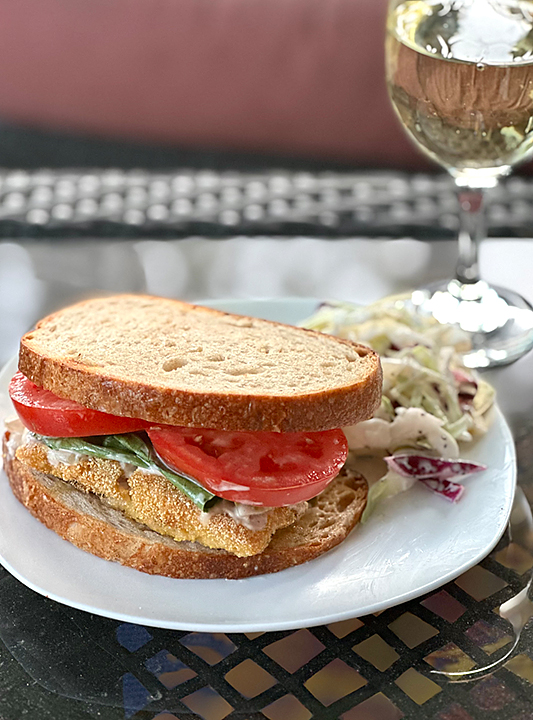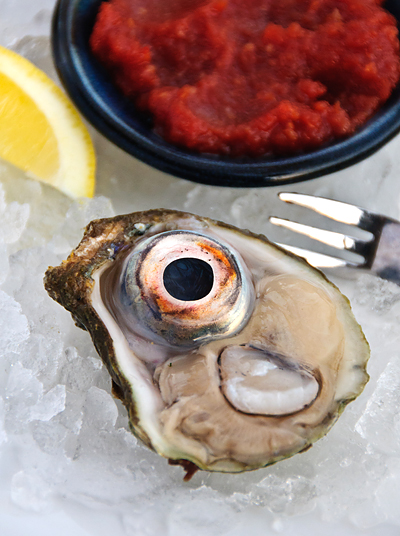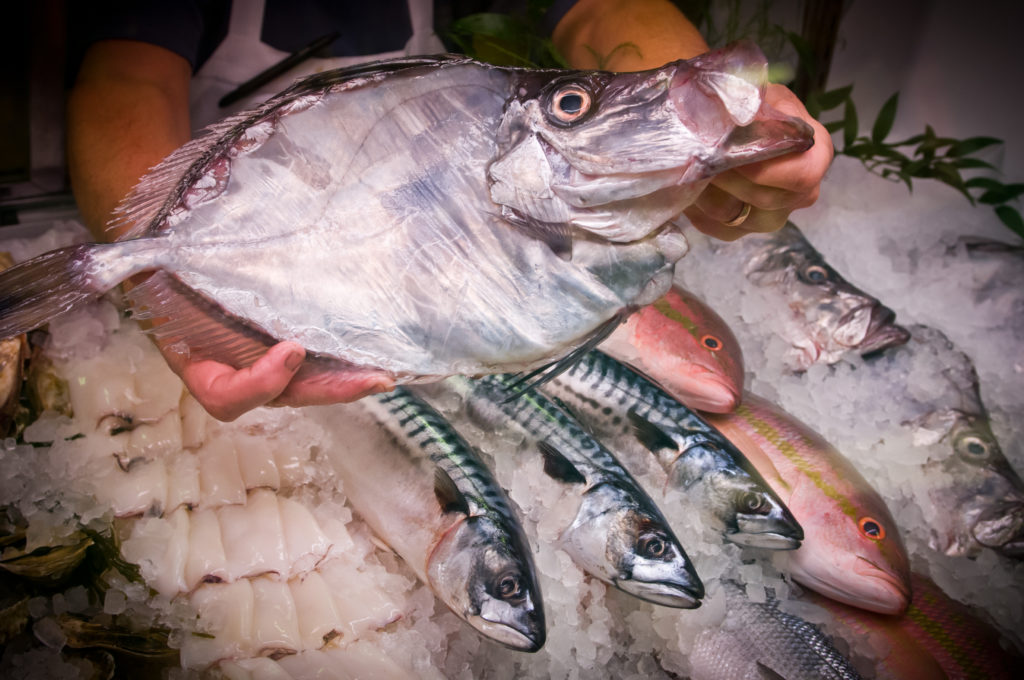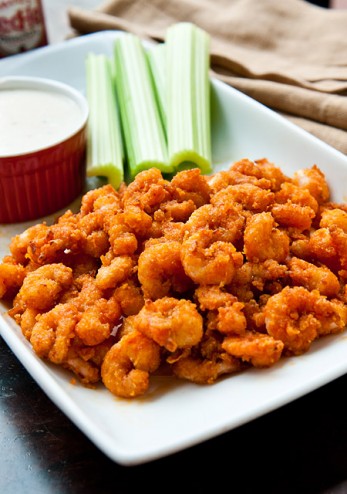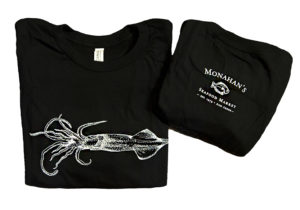The Incredible Invertebrate Octopus!
The octopus is truly one of the most interesting and amazing creatures in the sea. With 289 species ranging in size from 2 inches to over 10 feet and over 60 lbs. (we had a 30-pounder at the market back in the ’80s)—an octopus is the a type of mullosk called a cephalopod (the same group as squid, cuttlefish and nautilus).
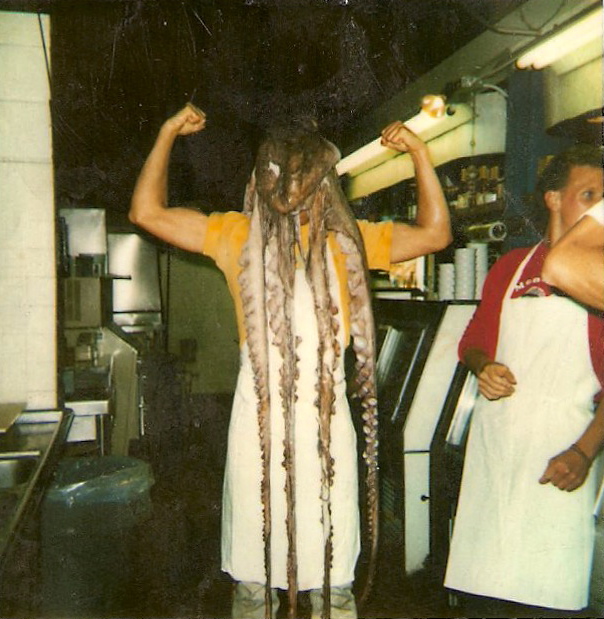
Former fishmonger, Deveaux, wears a Giant Pacific Octopus on his head (circa sometime in the 1980s)
They have unbelievable characteristics (especially considering they are in the same family as scallops, clams, mussels and snails)—octopi are very smart, they learn from experience. In one study, a jar containing a fish was placed next to a tank containing an octopus. He figured out how to unscrew the lid to get to the prey (observed on camera). They can also change their color, patterns and even texture to perfectly match and blend in with their surroundings to hide from predators. Great escape artists, octopi can squeeze themselves into cracks and crevices not much larger than their beaks (the only hard part of their bone and cartilage-free bodies). Squirting a cloud of ink, they can blind and confuse their prey as well as any predators. If an enemy should take an arm, it will grow back. Their amazing, strong sucker covered arms allow them to feed mainly by ambush—grabbing prey and paralyzing it with a toxin in their saliva. Then they will usually take the prey back to the safety of their dens, leaving a pile of shells outside.
The mating habits of the octopus are fascinating. The male will hang around and guard the den of its mate, strangling any competitors who come along. Quite often, small, sneaky males will attempt to disguise themselves as females in an attempt to get past the guard and into the den, which doesn’t always work. Octopi are so amorous, they have been observed having same-sex encounters, even with different species in the octopus family. When it’s time to mate, the male passes sperm down his hectocotylus (the third right arm, to be exact) and deposits it into the female (hen). She will then decide when to release the fertilized eggs around the ceiling of her den, sometimes waiting for a couple of days. She will pump water over the eggs to oxygenate them and then, sadly, she will die during or after this time. Females only live about 2–2.5 years, males for 3–3.5.
Out of the 150,000 eggs that hatch, only a few will survive. When born, they look like perfect, tiny, little octopuses. They float to the surface where they (if they have survived to this point) will live on plankton and then spend the rest of their lives on the ocean floor.
Now let’s get to the happy (and tasty) part of the story—Octopus is delicious! Asia (particularly Japan) and the Mediterranean countries love ’em! Greeks smash them up on rocks (to tenderize), then grill and serve with olive oil, lemon and oregano. They also make a wonderful salad with tomatoes, onions and a lemony vinaigrette or stew them in a nice tomato sauce and served over pasta or with some crusty bread. One of our family favorite’s is a Spanish style with potatoes and lots of garlic. You’re gonna love it!
There are lots of great recipes! The common denominator is that octopus must be cooked for at least 45 minutes to be tender—this is the case whether you are boiling or stewing…(I even boil them before grilling them). Octopus is a favorite around our house. My daughter Kim requests it for every birthday dinner. Another household winner- Octopus Tacos!

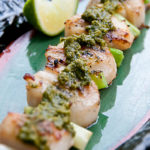 Previous Post
Previous Post Next Post
Next Post